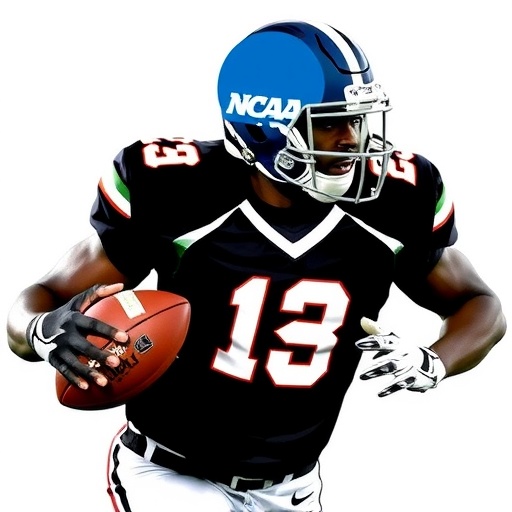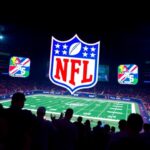NCAA Approves Sports Betting for College Athletes on Professional Leagues: A Game-Changing Policy Shift
In a surprising pivot that could redefine the boundaries of college athletics, the NCAA has announced it will allow college athletes, coaches, and staff to place bets on professional sports starting November 1, 2024. This decision marks a significant departure from the organization’s long-standing wariness toward sports betting, yet it stops short of touching wagers on college games themselves. As sports betting continues to sweep across the U.S., this move underscores evolving attitudes in NCAA governance, balancing personal freedoms with the integrity of college athletics.
- NCAA’s Bold Move: Permitting Bets on NFL, NBA, and More
- Behind the Policy: Balancing Integrity and Modern Realities in College Athletics
- Athlete Voices: Excitement and Concerns Over New Betting Freedoms
- Industry Ripple Effects: How Sports Betting Partnerships Could Reshape NCAA Revenue
- Future Horizons: Enforcement Challenges and Evolving NCAA Guidelines
The policy change comes amid a booming sports betting industry, which generated over $10 billion in revenue in 2023 alone, according to the American Gaming Association. For millions of college athletes navigating high-stakes environments, this green light could normalize a pastime enjoyed by many Americans, but it also raises questions about addiction risks and competitive fairness. NCAA President Charlie Baker, in a statement released Tuesday, emphasized that the rule aims to “align with societal shifts while protecting the core values of amateur sports.”
This isn’t just a regulatory tweak; it’s a response to legal realities post the 2018 Supreme Court decision that struck down the federal ban on sports betting. Since then, 38 states have legalized some form of it, with college campuses often at the epicenter of both excitement and controversy. As the November 1 deadline approaches, stakeholders from locker rooms to boardrooms are buzzing about what this means for the future of college athletics.
NCAA’s Bold Move: Permitting Bets on NFL, NBA, and More
The NCAA’s new guidelines explicitly permit participants in college athletics—including student-athletes, trainers, officials, and administrators—to wager on professional leagues like the NFL, NBA, MLB, NHL, and even international soccer competitions. This carve-out was detailed in an official memo distributed to member institutions last week, highlighting that bets on any NCAA-sanctioned events remain strictly prohibited.
“We’re recognizing that sports betting is now a part of American culture,” said Dr. Emily Hargrove, a spokesperson for the NCAA Division I Council. “By allowing engagement with pro sports, we’re reducing the underground appeal and focusing enforcement where it matters most: on college-level integrity.” This policy applies across all three NCAA divisions, affecting over 500,000 student-athletes nationwide.
To illustrate the scope, consider a star quarterback at a Big Ten university: under the old rules, even a casual Super Bowl parlay could result in sanctions. Now, that same athlete can legally bet on the Kansas City Chiefs versus the Philadelphia Eagles, as long as no college games are involved. The NCAA has partnered with monitoring firms like Genius Sports to track compliance, using advanced analytics to flag any crossover violations.
Statistics underscore the timeliness of this shift. A 2023 survey by the NCAA itself revealed that 25% of Division I athletes had placed a sports bet in the past year, often through offshore apps skirting state laws. By formalizing bets on pro sports, the organization hopes to channel this activity into regulated markets, potentially generating educational revenue through partnerships with legal sportsbooks like DraftKings and FanDuel.
Behind the Policy: Balancing Integrity and Modern Realities in College Athletics
The decision didn’t emerge in a vacuum. For decades, the NCAA has positioned itself as a bulwark against gambling’s corrosive influence on college athletics, citing scandals like the 1951 point-shaving incident at City College of New York that tainted basketball’s early years. More recently, the 2010s saw high-profile cases, such as the FBI probe into Arizona State basketball players betting on their own games, leading to lifetime bans.
Yet, the landscape shifted dramatically after the 2018 Murphy v. NCAA Supreme Court ruling, which empowered states to legalize sports betting. By 2024, wagers on sports have surpassed $150 billion annually in the U.S., with young adults aged 18-24 comprising 40% of new bettors, per a Statista report. College campuses, with their passionate fanbases and proximity to professional teams, became hotspots—think tailgates at Michigan Stadium where bets on the Detroit Lions fly as freely as the foam fingers.
Internal NCAA deliberations, leaked in part to ESPN, reveal heated debates. Proponents argued that blanket bans were unenforceable in a post-PASPA (Professional and Amateur Sports Protection Act) world, while opponents feared it could erode the amateur ethos. Ultimately, the policy threads a needle: freedom for pro bets, zero tolerance for college ones. Enforcement will include mandatory annual training on responsible gambling, with violations carrying penalties from fines to eligibility loss.
Quotes from key figures add color to the narrative. “This is a pragmatic step,” noted University of Alabama coach Nick Saban in a pre-retirement interview. “Kids today grow up with apps like BetMGM; pretending it doesn’t exist is naive.” On the flip side, student-athlete advocate Taylor Hirth of the College Athlete Advocacy group cautioned, “While it’s a win for personal choice, we need robust support systems to prevent the 1 in 5 college students at risk of gambling disorders from spiraling.”
Athlete Voices: Excitement and Concerns Over New Betting Freedoms
For the athletes at the heart of college athletics, reactions are mixed, blending relief with apprehension. At a press conference hosted by the Pac-12 Conference, USC running back Marqise Lee shared his perspective: “I’ve watched NFL games with friends who bet, and it was always awkward being the only one sitting out. This levels the playing field socially, but I worry about the pressure to join in.” Lee’s comments echo a broader sentiment among the 1.2 million NCAA participants, many of whom view sports betting as harmless entertainment akin to fantasy football.
Anecdotal evidence from pilot programs at select universities, like Ohio State, shows positive early signs. In a controlled study last spring, 80% of participants reported feeling less isolated after legal pro betting was trialed, with no uptick in college-related wagers. However, experts like Dr. Lia Nower, director of the Center for Gambling Studies at Rutgers University, warn of pitfalls. “College athletes face unique stressors—performance anxiety, NIL deals, social media scrutiny. Betting on pros could be a gateway if not monitored,” she said in a recent op-ed for The Athletic.
To mitigate risks, the NCAA is rolling out resources: a 24/7 helpline in partnership with the National Council on Problem Gambling, campus seminars on bankroll management, and integration with athlete wellness apps. Data from the National Collegiate Athletic Association’s own health surveys indicates that while only 3% of athletes currently show signs of gambling issues, exposure to legalized betting could double that figure without intervention.
Personal stories humanize the stakes. Take Jordan Ramirez, a former UCLA baseball player who battled a betting habit during his sophomore year. “I started with NBA props to unwind from practices,” Ramirez recounted in a podcast interview. “It escalated until I hit rock bottom. If this policy had existed then, with the support it’s promising, maybe I’d have stayed in bounds.” His tale, now part of NCAA outreach materials, serves as a cautionary yet hopeful note.
Industry Ripple Effects: How Sports Betting Partnerships Could Reshape NCAA Revenue
Beyond the athletes, this policy opens doors for the NCAA’s bottom line. With sports betting operators hungry for mainstream credibility, expect a surge in sponsorship deals tailored to college audiences. FanDuel, which already advertises during March Madness broadcasts, has hinted at exclusive “pro-only” betting hubs for verified NCAA affiliates, potentially injecting millions into conference coffers.
Economically, the timing is ripe. The global sports betting market is projected to hit $182 billion by 2030, per Grand View Research, with U.S. college sports driving 15% of that growth through fan engagement. The NCAA, facing budget strains from recent NIL (Name, Image, Likeness) rulings and conference realignments, sees this as a lifeline. “Monetizing pro betting alignments without compromising college purity could fund scholarships and facilities,” projected NCAA financial analyst Mark Emmons in a Bloomberg analysis.
Challenges loom, however. State-by-state variations in betting laws complicate implementation— for instance, California voters rejected legalization in 2022, leaving West Coast athletes in a patchwork of options. Moreover, antitrust scrutiny from the DOJ could arise if partnerships favor certain books, echoing past NCAA legal battles.
Looking at precedents, the NFL’s embrace of betting post-2018 yielded $1.5 billion in new revenue streams. If the NCAA follows suit, college athletics could see similar windfalls, but only if safeguards prevent scandals. As one Big East commissioner put it anonymously, “This is high-reward, high-risk poker— and we’re all in.”
Future Horizons: Enforcement Challenges and Evolving NCAA Guidelines
As November 1 nears, the NCAA is gearing up for a multi-phased rollout. Initial compliance audits will target high-profile programs like those in the SEC and ACC, using AI-driven tools to monitor social media for betting boasts. Long-term, the organization plans biennial policy reviews, incorporating athlete feedback via surveys and advisory councils.
Broader implications extend to cultural shifts in college athletics. With sports betting normalized, expect curriculum integrations in sports management degrees, teaching ethical wagering alongside stats and strategy. Federally, bills like the SAFE Bet Act could standardize rules, potentially expanding NCAA leeway further.
Optimists envision a healthier ecosystem: reduced hypocrisy, empowered athletes, and sustained revenue for non-revenue sports like swimming and track. Pessimists, including some ethics professors, fear a slippery slope toward full commercialization. Whatever unfolds, this policy cements the NCAA’s adaptation to a betting-infused era, promising both opportunities and vigilance in safeguarding the spirit of competition.
In the coming months, watch for pilot data from early adopters and legal challenges that could refine—or upend—this framework. For now, the green light on pro bets signals a new chapter, one where college athletics meets the modern world head-on.








